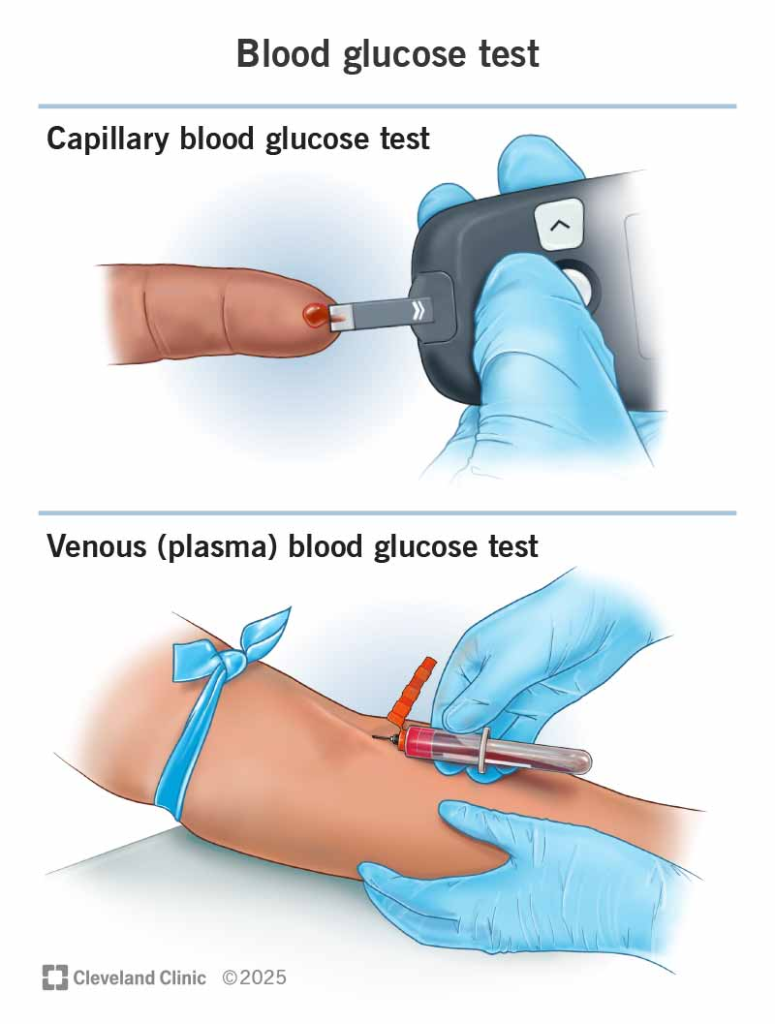Overview
A capillary test shows a fingertip with a blood drop next to a test strip. A venous test shows a blood draw from the forearm
There are two main types of blood glucose tests. Venous blood glucose tests are generally more accurate than capillary tests.
What is a blood glucose test?
A blood glucose test mainly screens for diabetes by measuring the level of glucose (sugar) in your blood.

There are two main types of blood glucose tests:
Capillary blood glucose test. A healthcare provider collects a drop of blood — usually from a fingertip needle prick. For an infant, a provider pricks their heel. This test involves a test strip and glucose meter. You get the result within seconds.
Venous (plasma) blood glucose test. A phlebotomist collects a sample of blood from a vein. This glucose test is usually part of a blood panel, like a basic metabolic panel. The provider sends the sample to a lab for testing.
Venous blood glucose tests are generally more accurate than capillary blood glucose tests.
Other types of blood glucose tests include:
Fasting blood sugar test. This test can screen for diabetes. Eating food affects your blood sugar. So, fasting blood glucose tests show a more accurate picture of your baseline blood sugar.
At-home glucose monitoring. People with diabetes use a glucose meter with a finger prick or a continuous glucose monitor (CGM). Monitoring your glucose level is essential to effectively managing diabetes.
What is blood glucose (sugar)?
Some glucose (sugar) comes from carbohydrates in the food and drinks you consume. Your liver releases some, as well. Glucose is your body’s main source of energy. Your blood carries glucose to all your body’s cells.
Several bodily processes help keep your blood glucose in a healthy range. Insulin, a hormone, is key to maintaining healthy blood sugar.
If you have high glucose levels (hyperglycemia), it usually means you have diabetes. Diabetes develops when your pancreas doesn’t make any or enough insulin, or your body isn’t using insulin properly.
When would I need a blood glucose test?
There are four main reasons why you may need a blood glucose (sugar) test:
Your healthcare provider may have ordered routine bloodwork called a basic metabolic panel (BMP) or a comprehensive metabolic panel (CMP). Both of these include a glucose measurement.
You have symptoms of high blood sugar or low blood sugar.
You’re doing a glucose tolerance test during pregnancy to check for gestational diabetes.
You’re taking a long-term medication that affects your blood sugar levels, like corticosteroids. Your provider may recommend routine blood glucose checks to monitor your levels.
The most common use of a blood glucose test is to screen for Type 2 diabetes (T2D). If you have risk factors, your provider will likely recommend regular screening no matter your age. The American Diabetes Association recommends regular screening for anyone age 35 or older.

发表回复